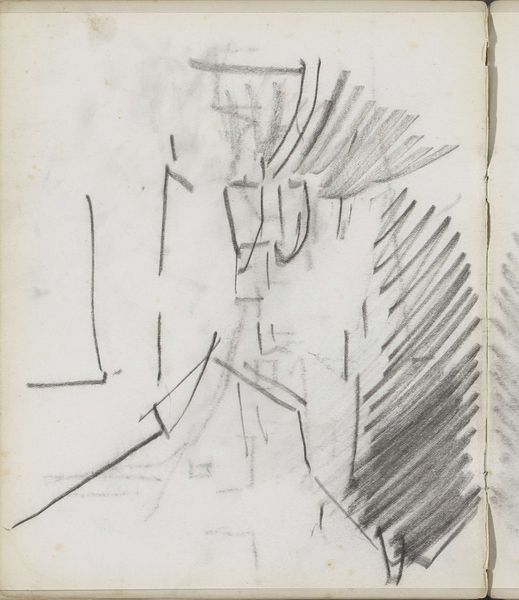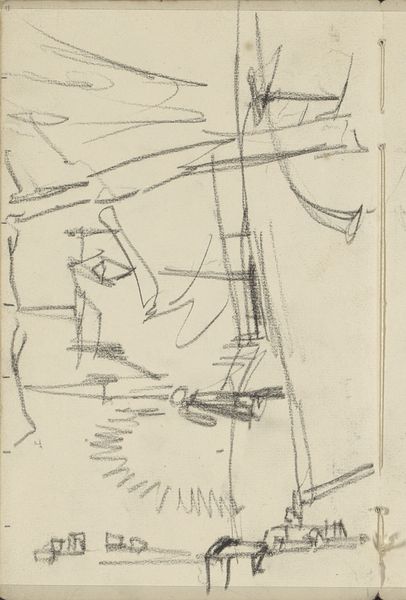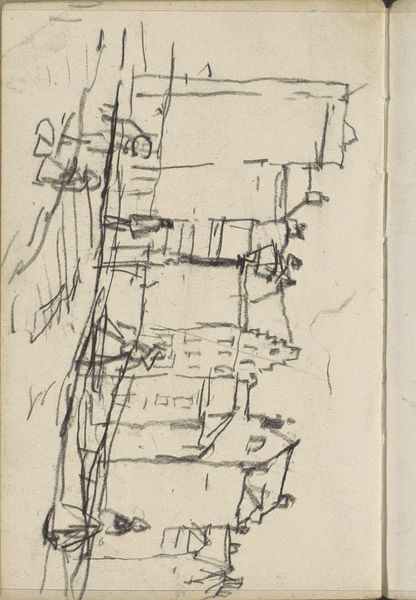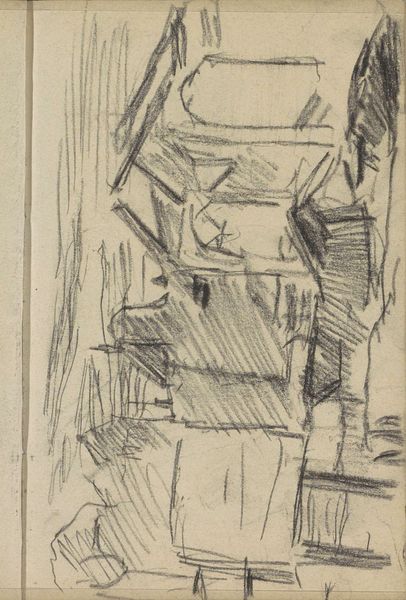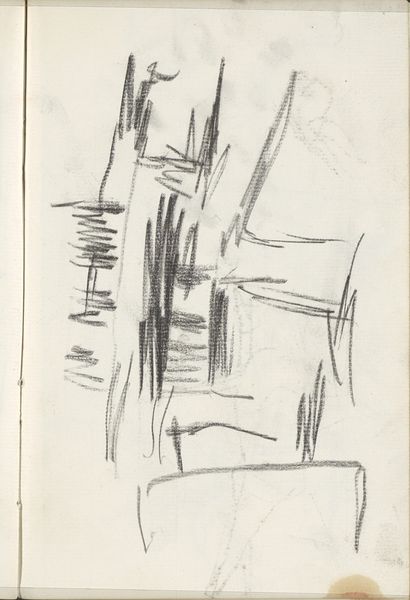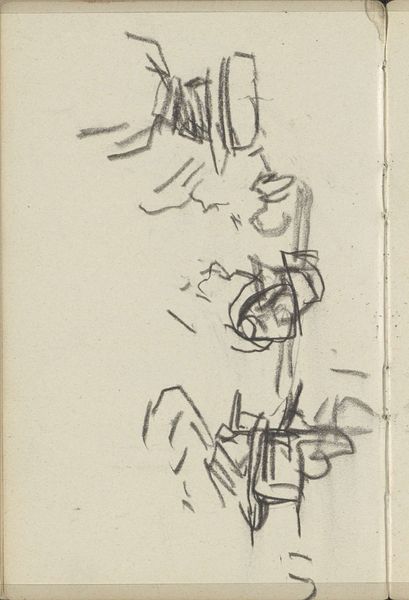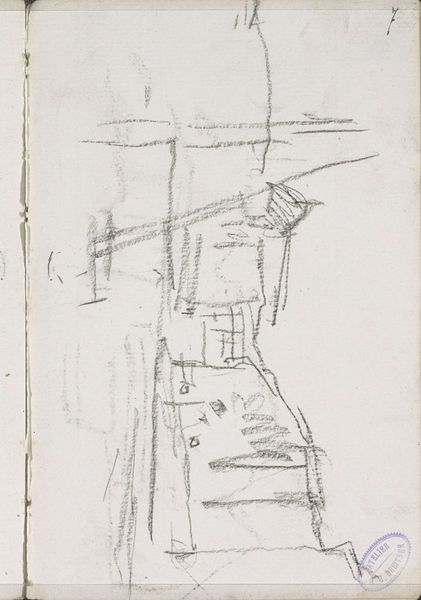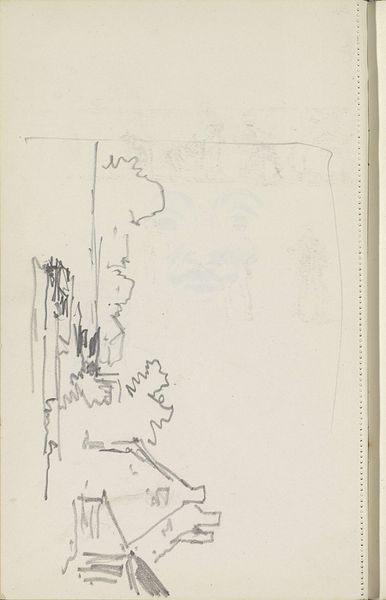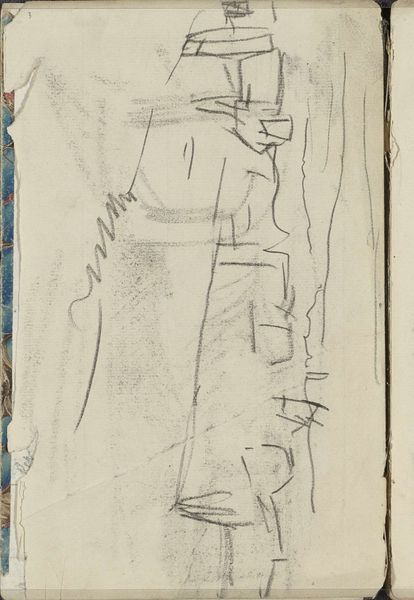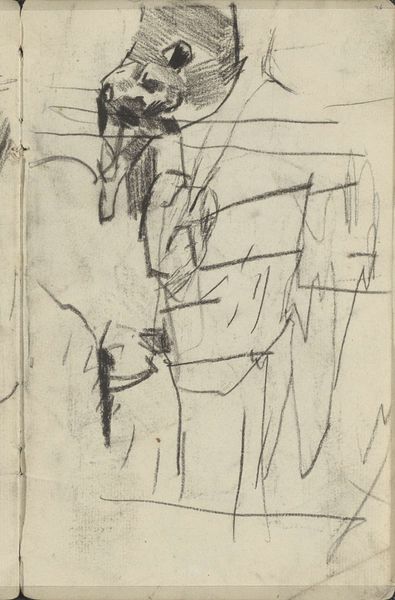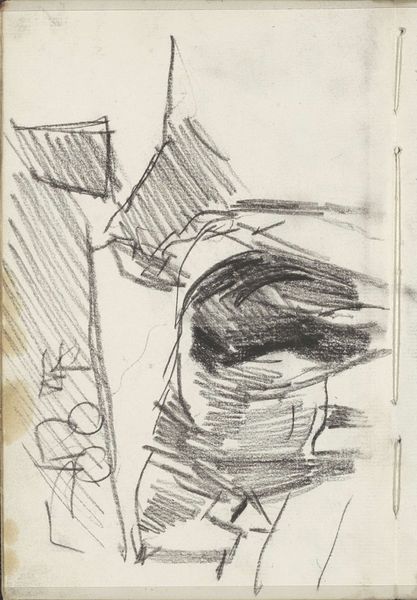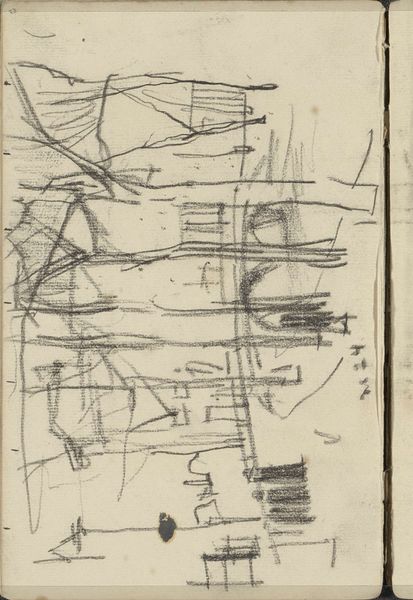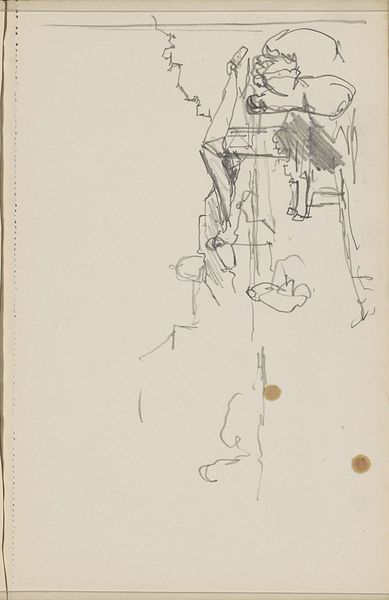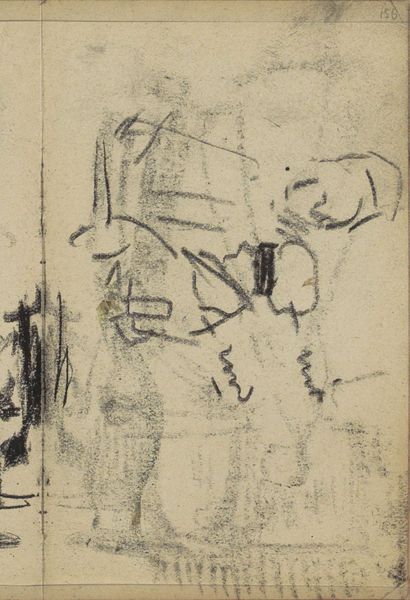
Dam te Amsterdam, gezien vanuit de Kalverstraat Possibly 1907 - 1911
0:00
0:00
georgehendrikbreitner
Rijksmuseum
Copyright: Rijks Museum: Open Domain
Editor: This is George Hendrik Breitner's graphite drawing, "Dam te Amsterdam, gezien vanuit de Kalverstraat," dating possibly from 1907 to 1911. I'm struck by the sketchiness, it's so immediate. What do you see in this piece in terms of its historical and cultural relevance? Curator: It's a compelling document of a city in flux. Breitner, deeply influenced by the social realities he witnessed, captures Amsterdam during a period of rapid urbanization and industrial change. The drawing's hurried lines, seemingly unfinished, speak to the fleeting moments of modern life that Impressionists tried to grasp. Editor: So the incomplete nature is intentional, reflecting the pace of change? Curator: Precisely. Think about the context: photography was emerging, challenging painting's traditional role. Artists like Breitner began exploring new ways to depict reality, focusing less on meticulous detail and more on capturing atmosphere and movement. His impressionistic sketches of Amsterdam really showcase the changes of the time. This artwork displays a very specific point of view too, as it shapes the way we percieve society, class, and progress during a transformative era. Does this context shift your initial impression? Editor: Definitely! I initially saw it as just a preliminary sketch. Understanding its connection to broader social changes and the rise of photography really enriches the work. Thanks! Curator: And recognizing the historical context illuminates not just Breitner's artistic intentions but also how museums shape our perception of incomplete art as "finished". A perspective shift.
Comments
No comments
Be the first to comment and join the conversation on the ultimate creative platform.
